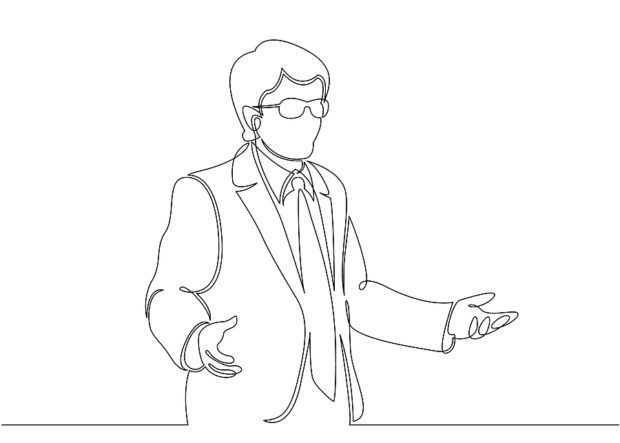As the pandemic continues to wind down, and with jurors finally starting to return to large metropolitan courthouses across the country, it is becoming increasingly clear that insurance carriers are not ready to handle the impending wave of litigation that is on its way.
Executive Summary
Insurance executives all too familiar with shortages of talented insurance professionals may not have realized that trial lawyers are also in short supply. Here, trial lawyer Robert Tyson explains why insurers with panels of lawyers, who have reliably responded to past crises, could find themselves defenseless to deal with the impending wave of litigation, and offers tips on how make sure they have the best trial attorneys going forward. Among the tips: communicate. “If you have excellent defense lawyers who are winning big cases for you, why not insist they share their winning techniques with your other defense lawyers?” he asks.Do you know which trials will go first? Will there be any rhyme or reason as to which claims you have right now will be tried first? Do you have enough trial lawyers to handle each of your claims right now, or a year from now?
Unchartered, unknown and unprecedented are all perilous words for risk-averse insurance companies. The combination of an aging and dwindling population of trial lawyers, an avalanche of delayed jury trials, and the reality that nuclear verdicts—jury verdicts of $10 million or more, or those in which non-economic damages awards are disproportionate to the economic damages—appear to be getting worse during the pandemic all point to a perfect storm of litigation. (See, for example, the American Transportation Research Institute’s June 2020 report, “Understanding the Impact of Nuclear Verdicts on the Trucking Industry.”)
Insurers tend to think they have plenty of trial lawyers on their panel. Often, they have several attorneys or firms across the country they can call upon, even for last-minute crises. These attorneys have moved around their schedules in the past and been there to help over the last 10, 20 or even 30 years.
Allow me to let you in on a little secret—a new pandemic reality, if you will: There are not enough trial lawyers for what is about to come.
A trial lawyer’s ability to rearrange his or her schedule to accommodate last-minute trials—really any trial—is over. There simply are going to be too many cases and too many judges who do not, or cannot, care about a trial lawyer’s impacted calendar. The backlog of civil trials in America is beyond comprehension. So, when there is a courtroom available, it will be next case up, no excuses.
What can insurers do?
To prepare for the onslaught of jury trials, here are three things insurance companies can do to make sure they have enough, and the best, trial attorneys—especially for their biggest cases: educate, communicate and compensate.
Educate
Insurers can and should help their defense lawyers become trial lawyers, or become better trial lawyers, now. First, defense lawyers should never be allowed to go to trial alone. As their clients, insurance companies should insist they bring an associate with them so they receive hands-on experience and can act as trial lawyers for that insurer in the future. It will also help immediately as your lead trial counsel will be able to handle more trials if they have help. Will it be more expensive? In the short run, yes. But in the long run, can insurers afford not to?
Insurers should urge their defense lawyers to learn how to become better trial lawyers by continuing their education. There are even resources out there to train lawyers on how to avoid nuclear verdicts in a post-pandemic world. (Related article, “How the Insurance Industry Can Tame Social Inflation“)
Another little secret: We defense lawyers do whatever insurance companies ask us to do. So, insurers, ask your defense lawyers to get educated on exactly what they should be doing in trial to avoid nuclear verdicts. Your defense counsel will do it if you ask.
Communicate
And along those same lines, the insurance defense industry needs to better communicate with one another. In over 30 years, I have never—and I mean never—received an email from an insurance carrier client telling me about a successful or unique trial technique. I have never received a best practice tip from a carrier or another panel firm.
I have, however, received plenty of advice on billing practices, expert hiring practices, vendor retention, reporting requirements, litigation guideline compliance and more. But nothing on trial tips, discovery advice or plaintiff’s litigation trends.
If you have excellent defense lawyers, who are winning big cases for you, why not insist they share their winning techniques with your other defense lawyers? Start a listserv for just your own panel counsel about what works and doesn’t work in trial. Have regular attorney roundtables where your defense counsel do something we never do—talk to each other.
Everyone in the insurance industry agrees we need to share more information with each other. The plaintiffs bar does it all the time. They share everything with each other, everywhere.
But the defense side shares almost nothing. (Related article on plaintiffs bar tactics, “Insurers Need Playbook to Slow Social Inflation; COVID Didn’t Do It“)
We need to start somewhere. At the very least, insurers should share information among their own attorneys and the law firms they use. Maybe carriers cannot change the whole defense industry, but why not have your own defense teams share what works with each other? Why not start today?
Compensate
There are plenty of insurance defense lawyers out there, and they all want more business (myself included). They want volume. In fact, the whole insurance defense model is premised on one core concept: The Next Case Principle.
The Next Case Principle is the hope of getting the next case from an insurance company, or the threat of not getting the next case. This drives just about everything insurance defense attorneys do. It is a volume business. Why else would we take the rates we get paid unless we are getting volume? This forces a defense firm’s most important case to be the next one. It has to be, because that is the model.
And the truth is, this model works. But that does not mean it isn’t in need of a change every now and then. There are times when defense counsel must drop everything and take over a case an insurer didn’t know was going to trial. It may even be one of that carrier’s biggest cases of the year and one they are truly worried about. In those instances, the insurer needs its trial lawyer to devote all their energy to that one trial and not follow the model or worry about getting their next case.
It might sound crazy that an insurance defense lawyer would turn down a big trial on short notice. But remember the coming new reality and the fact that a defense lawyer really can only be in one place at any given time. And trial judges will not wait. They simply can’t; there are too many cases.
So, how can insurers avoid their best trial lawyers saying no? What is the carrot to have a trial lawyer drop everything and take a major, last-minute case? It is not a promise of more cases or a threat of taking away cases.
The answer lies in value billing. Insurance carriers should incentivize their defense counsel to break the model and have skin in the game. For the most important cases, insurers should not just pay for a trial lawyer’s time (which is going to be extremely limited) but rather the value he or she brings to the case.
For example, at Tyson & Mendes, we created a new defense firm to try only our clients’ biggest cases, often shortly before trial. Known as TM HALO, the firm features several of our most experienced trial lawyers and their teams, who can parachute in to try an insurer’s most worrisome cases (usually those that have a value of at least $10 million). The firm is paid on a reduced flat fee and a contingency fee based upon the savings the attorneys are able to achieve. In doing so, the attorneys are more motivated than ever to win. Because if the client loses, they lose. And if the client wins, they win.
Trials Are Coming
The pandemic dam will burst eventually. Jury trials will begin to flow at pre-pandemic levels or greater. And when the courts are fully operational and jurors return without any restrictions, which cases that have been waiting for years will go first? Are there enough trial lawyers to try all these cases? Will insurers be ready?
They must start now. If they take the time to educate, communicate and compensate, maybe we will all be ready for the inevitable return of jury trials when the time comes.





















 Flood Risk Misconceptions Drive Underinsurance: Chubb
Flood Risk Misconceptions Drive Underinsurance: Chubb  Allianz Built an AI Agent to Train Claims Professionals in Virtual Reality
Allianz Built an AI Agent to Train Claims Professionals in Virtual Reality  What Analysts Are Saying About the 2026 P/C Insurance Market
What Analysts Are Saying About the 2026 P/C Insurance Market  Nearly 26.2M Workers Are Expected to Miss Work on Super Bowl Monday
Nearly 26.2M Workers Are Expected to Miss Work on Super Bowl Monday 










